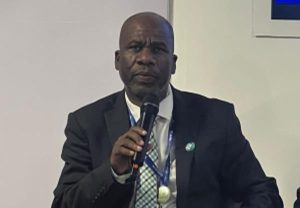Ministers and Heads of Delegation from the Least Developed Countries (LDCs) convened in Lilongwe, Malawi on August 28, 2024, to adopt and issue the 2024 Lilongwe Declaration on Climate Change. The Declaration sets out the LDC Group’s priorities for COP29 in Baku, Azerbaijan, focusing on the urgent need for climate action aligned with the 1.5°C global warming limit.

The Lilongwe Declaration underscores the critical importance of achieving deep reductions in global emissions, significantly scaling up support for addressing climate change in vulnerable countries and emphasising the role of climate finance as a key enabler of climate action. The Ministers highlighted the necessity of setting a New Collective Quantified Goal (NCQG) on climate finance at COP29 that reflects the evolving needs of developing countries, particularly LDCs.
LDC Chair, Evans Njewa, remarked: “We want COP 29 to deliver a bold commitment to address climate change. This is not just about promises; it’s about providing the resources needed to protect the lives and livelihoods of millions on the frontlines of the climate crisis.
“The LDCs are calling for an ambitious New Collective Quantified Goal (NCQG) on climate finance that reflects the actual financial needs of developing countries, ensuring they can implement their NDCs, adapt to climate impacts, and address loss and damage.”
Key highlights:
- The Ministers stressed the importance of establishing an ambitious New Collective Quantified Goal (NCQG) for climate finance that accurately reflects the financial needs of developing countries. They called for new and additional public finance, primarily in the form of grants, noting that their countries require an estimated $5.8-5.9 trillion by 2030. Furthermore, LDCs need at least $1 trillion to implement their current Nationally Determined Contributions (NDCs)
- On Global Emissions Reduction, the LDC Ministers called for full implementation of the first Global Stocktake (GST) outcomes, including submission of new and updated Nationally Determined Contributions (NDCs) by early 2025. These contributions must include targets that are aligned with the goal of limiting global warming to 1.5°C, reflecting the urgency of the climate crisis.
- In terms of Adaptation, the LDCs underscored that the UAE-Belém Work Programme on Indicators must establish a comprehensive set of indicators to assess and track global progress towards the GGA Framework Targets. They reiterated the urgent need to scale up adaptation efforts and support, urging developed countries to fulfill their promise of doubling adaptation finance by 2025.
- On the issue of Loss and Damage, the Ministers called for substantial capitalisation of the Fund for Responding to Loss and Damage (FLD) with new and adequate financial pledges from Parties with greater responsibility and capabilities and reiterated that ensuring predictable and sustainable funding for loss and damage demands that finance for addressing loss and damage is included as a sub goal in the NCQG.
- They emphasised the urgent need for additional funding to key climate funds, including the LDC Fund, and the Green Climate Fund (GCF), all of which are vital for addressing the severe impacts of climate change on vulnerable populations.
- Further, the LDCs reaffirmed their commitment to advancing key initiatives, including the LDC Initiative for Effective Adaptation and Resilience (LIFE-AR), Least Developed Countries Universities Consortium on Climate Change (LUCCC) and the LDC Renewable Energy and Energy Efficiency Initiative for Sustainable Development (LDC REEEI). These initiatives are crucial for building resilience and sustainable development in the most vulnerable nations.
- The LDCs also expressed strong support for a Just Transition that increases energy access in their countries. This transition must be aligned with the UAE Just Transition Work Programme (JTWP) to ensure that the shift to low-carbon economies is equitable and inclusive, leaving no one behind.
The Least Developed Countries (LDCs) Group consists of 45 nations spanning Africa, the Asia-Pacific, and the Caribbean, representing over one billion people. These countries, highly susceptible to environmental and economic shocks and disproportionately impacted by the climate crisis, come together as a united bloc at UN climate talks. Their collective aim is to advance a fair and ambitious global response to climate change, addressing shared vulnerabilities and striving for equitable solutions.
